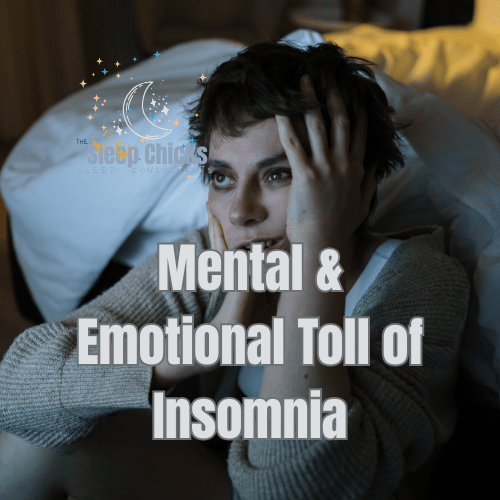
Mental and Emotional Toll of Insomnia
Insomnia is more than just a few sleepless nights. For those who experience it chronically, it’s a relentless cycle that wears down the mind, chips away at emotional resilience, and leaves even the most basic tasks feeling overwhelming. While society often treats sleeplessness as a minor inconvenience or even a badge of honor, the reality is far more complex—and far more damaging.
Mentally, insomnia fogs the brain. Concentration becomes slippery, memory grows unreliable, and decision-making slows to a crawl. Tasks that were once second nature can begin to feel like monumental challenges. This cognitive impairment isn’t just frustrating—it’s distressing. People begin to question their competence, their productivity, and sometimes even their identity. The brain, without rest, becomes a battlefield of confusion, frustration, and self-doubt.
Emotionally, the toll runs even deeper. Sleep is the body’s reset button, and without it, emotions lose their anchor. Irritability, anxiety, and sadness can become constant companions. For many, there’s also a creeping sense of hopelessness—an exhaustion so profound that it begins to color the entire emotional landscape. Everything feels a little heavier. Joy feels distant. The future feels foggy.
Insomnia is often both a symptom and a cause of mental health issues, especially anxiety and depression. Worries about not sleeping feed anxiety, and that anxiety then feeds the insomnia. It’s a cruel feedback loop that’s hard to escape. And because sleep problems are often invisible to others, those who suffer may feel isolated or misunderstood. “Just go to bed earlier” or “try not to think so much” are common, well-meaning suggestions—but they miss the mark entirely.
There’s also a strange sense of time distortion that comes with long-term sleep deprivation. Days blend into nights, and nights stretch endlessly. The quiet hours when the rest of the world is asleep can be the loneliest. It’s in these hours that the emotional toll of insomnia hits hardest, when the mind races and the world feels far away.
Addressing insomnia isn’t just about getting more sleep—it’s about healing. It’s about recognizing that sleep is fundamental to our well-being and that struggling with it is not a weakness. Seeking help—whether through therapy, lifestyle changes, medication, or a combination—is an act of self-compassion.
For those living with insomnia, know this: you’re not alone. Your exhaustion is real. Your frustration is valid. And healing is possible. Let’s start speaking more openly about the emotional and mental weight of insomnia, not just the physical tiredness. Because in that conversation, there’s understanding—and in understanding, there’s hope.
Whether you struggle with falling asleep, staying asleep, or simply want to improve the quality of your sleep, our experts are here to support you every step of the way. From personalized sleep plans to educational articles and interactive sleep trackers, we have everything you need to transform your sleep habits and wake up feeling refreshed and energized.